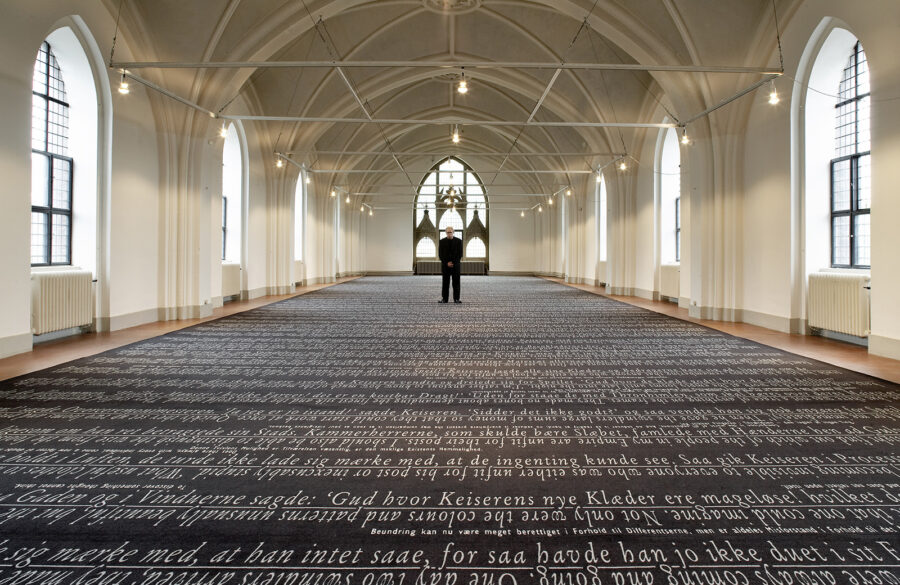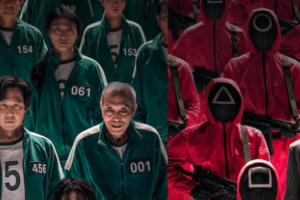It’s cold in Johannesburg. That surprised me because I always thought Africa was a hot place. That was the first of my expectations dashed upon the rocks of reality there. Accompanied by ten people, including seven high school students, I walked around an astonishingly large ghetto with bags of bread and canned foods.
To be honest, it felt like a bad joke. I was walking around a neighborhood that contained a dumbfounding 1 million impoverished, starving people with a few loaves of bread and one bag of assorted canned vegetables. It sounds like the making of a gospel miracle. In my case, it was the foundation for what felt like utter defeat.
I only had enough grocery bags to bless six households. I would walk to each door with much anticipation. Inevitably, it would swing open to a group of people that I could only assume was a family. No words were exchanged. Before I could say anything they took the bag and slammed the door. I’d walk to another house, only to repeat the same process. Few people looked me in the eye. They all seemed thankful but simultaneously communicated some kind of silent disdain for me. I am still not sure what to make of it.
I got face to face with a repugnant reality that I had heard about but never witnessed. It evoked many different emotions and ultimately, I went through a painful change.
Manners taught me I should have been offended by them taking my goods without even a “thank you,” but the fact that I’m writing this on a Mac Book Pro sort of subverts that feeling. Either way, it felt hopeless. I could do nothing to help even the people alone in this ghetto. And it was one of thousands of places like it scattered across the globe. Unlike the general sentiment hailed by the poor of America, there is nothing in the good ol’ USA even close to Africa’s poverty.
I can’t think of the last time that I saw a urine river that ran through a North American town because there is no public plumbing. I can, on the other hand, remember people complaining because they couldn’t afford cell phones. Maybe you can see where I’m going.
The last year has seen a surge in protests in the “The Occupy Movement” seeking the welfare of those that are members of the 99 percent. I do not agree with the general sentiment that Americans overall need more wealth, but there is something about the heart of what these protesters are fighting for.
As a Christian, who is supposed to care more about his faith than his fealty, how can I understand the Occupy Movement’s message? If I want to say that the 1 percent has its boot on the throat of the majority in America, then I probably shouldn’t raise the middle finger to the rest of the world who certainly feels the treads of American shoes.
Let me quickly point out that I am not particularly political and I wouldn’t be the first person to hop on the Occupy bandwagon. I get the idea; I just find it to be severely misdirected energy—especially on the part of Christians.
In my personal life, I see more and more young Christians becoming increasingly liberal in their views. This has resulted in many of them taking part in or heavily supporting various Occupations. I hear pundits accuse them of just acting this way to be hip or edgy—and that may sometimes be the case—but the accusation is naïve. Why not applaud them for having a Christ like heart for the poor and abused?
Unfortunately, I feel like so many young Christians are standing around squinting so they can see the fastidiously hidden problems on Wall Street. We need to stop squinting. We should open our eyes wide to the devastating problems that aren’t in our backyard. We are believers in a worldwide kingdom, so they’re our problems too.
I am not advocating some sort of global socialism. I have more to lose than most of the world if that ever happened. I’m also not trying to point an accusing finger, because, somehow I’m sure, its end would curve around back at me.
What I want to do is ask myself hard questions—harder questions than whether or not the wealth in America is appropriately distributed.
When I hear people talk about inequality in the U.S., sometimes I get caught up in it. I can clearly see injustice and feel angered by how rampant and unrepentant it is.
But occasionally, I time travel back two years and hear the creaking sounds of tin and wooden shacks in South Africa that I know are still there. Then I decide maybe my frustrations are a little bit misguided. I remember: I’m Christian before I’m an American.
Andrew Kelley is a life-long member of Hope Chapel and has spent much of his life there in ministry. For nearly ten years he both volunteered for and was employed by Special Ministries Disability Outreach, a ministry designed for persons with developmental disabilities, as its Program Director. After that he spent two years serving as Hope Chapel’s High School Ministry Director. He completed a BA from a Christian University in Southern California and is nearly finished with an MA in New Testament Theology from Talbot seminary. He hopes to pursue PhD studies after that. His personal areas of interest are Early Christian Origins, Theology, the cultural relevance of Christian ideas, and how theology can be integrated well with other professions. He lives with his wife in El Segundo, CA. His hobbies include watching entirely too much television, battling with his wireless router, drinking unhealthy amounts of Coke Zero and wishing that he read as much as his wife does.






11 Comments
Leave your reply.